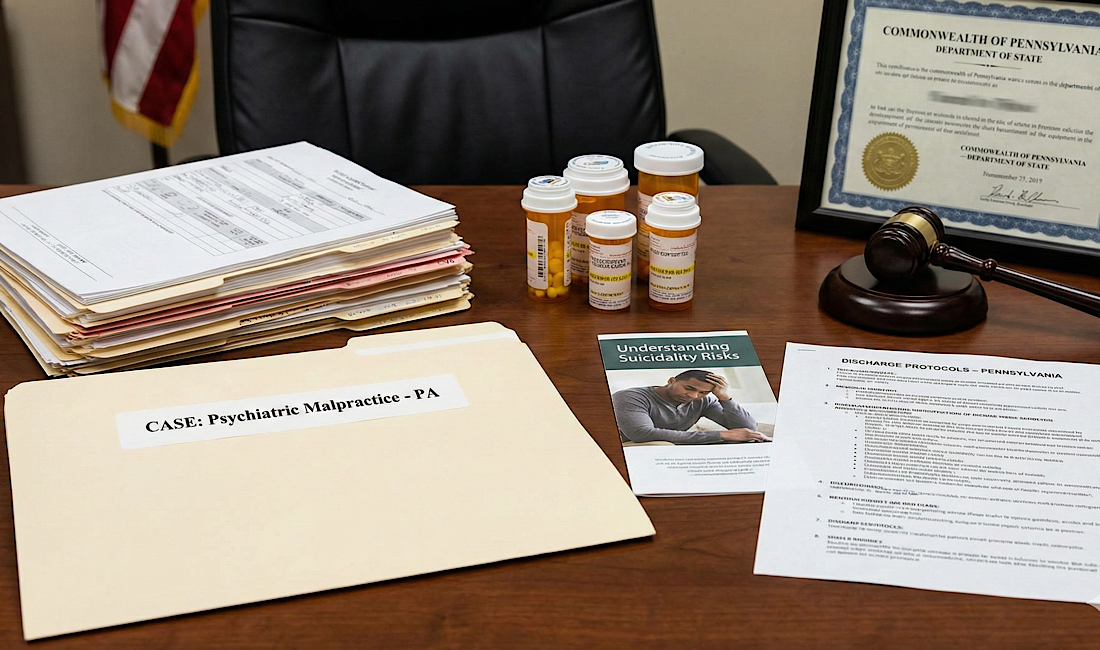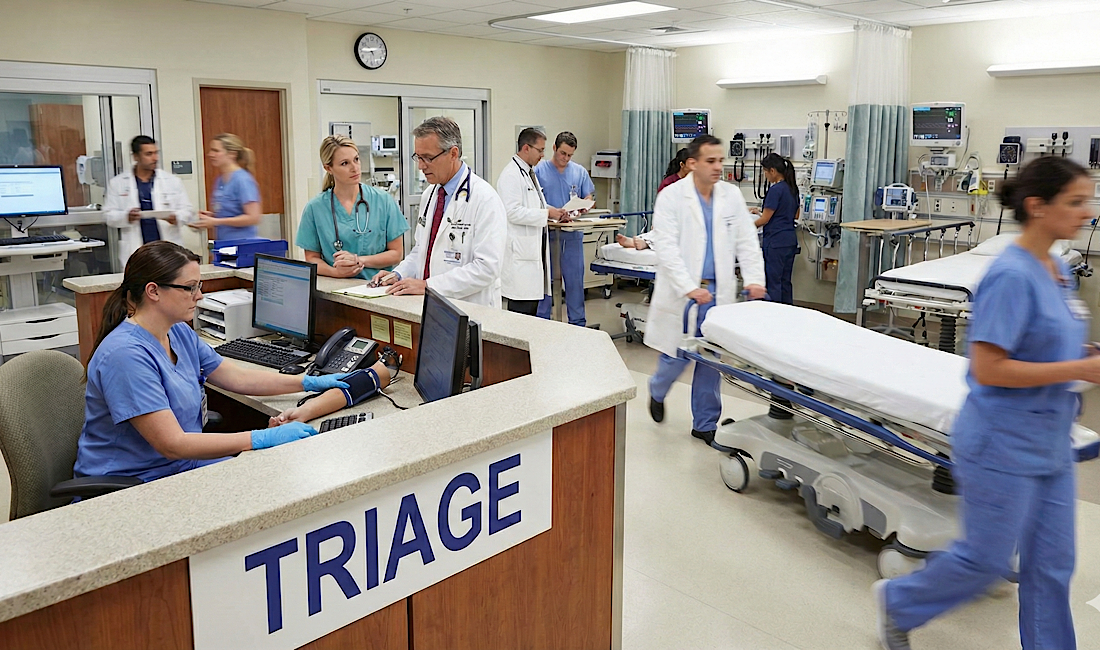Preventable Medical Errors Spike in 2024 — A Patient-Focused Guide for Pennsylvanians

Quick Takeaways
- Medical errors surged in 2024, led by patient falls and surgical blunders.
- Pennsylvania hit record incident levels, mirroring national trends.
- Most mistakes stem from communication gaps, skipped protocols, and staff fatigue.
- Engaged patients and advocates catch errors before harm occurs.
- After harm, collect records, report, and consult legal experts quickly.
Why This Matters Now
Imagine trusting a hospital with your life only to leave in worse shape—or not at all. That nightmare is becoming more common. The Joint Commission logged 1,575 “sentinel events” in 2024—a 12 % jump over 2023 [1]. These are the worst medical errors: wrong-site surgeries, fatal medication mix-ups, catastrophic falls. Pennsylvania hospitals filed 315,418 safety reports the same year—up 9.5 % [2]. Nationally, Johns Hopkins researchers warn that avoidable mistakes kill about 250,000 Americans every year, making them the nation’s third-leading cause of death [3]. This guide unpacks the 2024 spike, why errors persist, how Pennsylvanians—especially Pittsburgh patients—can stay safe, and when to seek legal help from firms like Frischman & Rizza.
What Counts as a Preventable Medical Error?
Definition & Scope
A preventable medical error is any mistake in care that proper systems, communication, or vigilance could have avoided. The Joint Commission labels the gravest of these “sentinel events”: outcomes causing death, permanent harm, or severe temporary harm [4].
Global Scale
The World Health Organization notes that 1 in 10 hospital patients in high-income countries is harmed during care, and roughly half of that harm is preventable [5]. Combine that with the Johns Hopkins estimate and the scope rivals heart disease and cancer.
2024 Numbers at a Glance
| Metric | United States 2024 | Pennsylvania 2024 |
|---|---|---|
| Sentinel events | 1,575 (↑ 12 %) [1] | 588 serious-harm events (↑ 7 %) [2] |
| Top category | Patient falls, 49 % [1] | Same trend |
| Other leading errors | Wrong-site/patient surgery, treatment delays, retained objects [1] | Medication errors, maternal harm [2] |
Patient-fall events ballooned from 18 % of sentinel reports in 2019 to nearly half in 2024—evidence that safety programs stalled during the pandemic and never fully recovered.
Why Are Errors Rising?
Communication Breakdowns
Care today involves dozens of hand-offs: emergency-room triage, inpatient shift changes, consulting specialists. When a critical allergy or abnormal lab value isn’t passed along, disaster follows. Joint Commission reviews list poor communication as the top root cause of sentinel events year after year [1]. A Pittsburgh woman’s death after receiving an antibiotic she was known to be allergic to—twice—shows how fatal a missed note can be [6].
Skipped Safety Protocols
Hospitals mandate checklists—pre-surgery “time-outs,” bar-code scans before medication—but busy teams sometimes treat them as boxes to tick, not life-saving steps. Investigations of wrong-site surgeries in 2024 found that teams either rushed or completely skipped mandatory pauses [1]. Checklists only work when every member treats them as sacred.
Staffing Shortages & Burnout
COVID-19 triggered a mass exodus of nurses and respiratory therapists. The remaining staff are spread thin, working 12-hour shifts with few breaks. Fatigue triples the risk of a serious error, according to multiple nursing-safety studies [1]. When a nurse watches eight patients instead of four, alarms blur together and drug calculations suffer.
Technology & Design Flaws
Electronic health records and “smart” pumps are only as smart as their interfaces. Similar-sounding drug names—hydralazine vs. hydroxyzine—still appear next to each other in drop-down menus. Alarm fatigue means 90 % of beeps are ignored; the one critical alert can be lost in the din. Until systems are redesigned for human cognition, technology will remain a double-edged sword.
Economic Pressure
Hospitals are under relentless pressure to shorten length of stay and maximize operating-room turnover. When OR teams feel rushed to start the next case, they may cut corners on instrument counts or skip the second verification of patient identity. Safety experts call this the “production versus protection” dilemma—the constant tension between efficiency and vigilance.
Pennsylvania in Focus
Pennsylvania’s mandatory reporting offers rare transparency. Facilities filed 315,418 incident reports in 2024; 4 % harmed patients [2]. Among the most tragic cases:
- A Westmoreland County woman died after receiving a known-allergy antibiotic—twice—during routine hernia surgery [6].
- Harmful medication errors statewide climbed from 166 in 2020 to 294 in 2023, setting the stage for 2024’s spike [6].
Attorneys at Frischman & Rizza stress that such tragedies rarely stem from a lone “bad doctor.” They expose layers of systemic failure—exactly what malpractice law is designed to correct.
How Patients Can Protect Themselves
- Speak up—ask, “What is this medication and why am I getting it?” A respectful question can catch a wrong dose before it’s given.
- Verify identity every time staff interact with you; proper care starts with the right patient.
- Share allergy and medication lists on paper and remind new providers verbally. Redundancy saves lives.
- Bring an advocate to listen, ask, and take notes—especially when you’re groggy or in pain.
- Watch falls and infections—ask for non-slip socks, bed-exit alarms, and visible hand hygiene.
Engaged patients do reduce errors; multiple studies confirm families catch ID and drug mix-ups clinicians miss [1].
What to Do After an Error
Get the Facts
Request your complete chart, medication records, and surgical notes. Under Pennsylvania law, hospitals must disclose serious events to patients or families. Ask for a written timeline of what happened and the steps the facility is taking to prevent recurrence.
Report It
File a complaint with the Pennsylvania Patient Safety Authority or the Department of Health. These agencies can trigger an on-site investigation and require corrective action plans. Your report also feeds statewide data that drives policy change.
Seek Legal Counsel
If the error caused significant injury, consult a Pittsburgh medical-malpractice lawyer—such as Frischman & Rizza—promptly. Attorneys gather expert opinions, preserve evidence, and ensure you file within the two-year statute of limitations. Compensation can cover medical bills, lost income, and long-term care while holding the provider accountable.
Find Emotional and Practical Support
Medical harm is traumatic. Peer groups, patient-safety nonprofits, and counseling services help families process anger, grief, and financial stress. Sharing your story publicly—whether in the media or legislative hearings—can also drive reforms that protect others.
Frequently Asked Questions
Are medical errors truly the third-leading U.S. cause of death?
Johns Hopkins research estimates roughly 250,000 annual deaths—only heart disease and cancer rank higher [3].
What is a “never event”?
A catastrophic mistake—wrong-patient surgery, retained sponge, fatal drug mix-up—considered 100 % preventable.
How soon must I file a Pennsylvania malpractice claim?
Generally within two years of discovering the injury; minors have until age 20.
Do I pay a lawyer up front?
Malpractice firms usually work on contingency: no fee unless you recover damages.
Can speaking up really make a difference?
Yes. Studies show engaged patients catch medication and ID errors that staff overlook—one question can stop a tragedy.
Moving Forward
The 2024 spike in preventable medical errors is a stark reminder that safety is fragile. Despite decades of initiatives, systemic cracks—widened by staffing shortages and pandemic fatigue—still let avoidable harm reach bedside after bedside. Yet proven tools exist: strict checklists, transparent reporting, a workforce that feels safe to speak up, and patients who stay actively involved.
If harm occurs, Pennsylvania law offers powerful avenues for accountability and compensation, and firms like Frischman & Rizza stand ready to help. Share this guide, discuss it with your providers, and keep it handy before your next hospital stay. Speak up, stay alert, and insist on safe care—your voice could save a life.
Legal Disclaimer
The material in this guide is provided for general informational purposes only and does not constitute legal advice. Reading, downloading, or otherwise using this content does not create an attorney–client relationship with Frischman & Rizza, P.C. or any of its lawyers. Because medical-malpractice law turns on specific facts and varies by jurisdiction, you should not act—or refrain from acting—on the basis of anything herein without first consulting qualified counsel licensed in your state.
The statistics, case examples, and external sources cited reflect information available as of July 2025. Frischman & Rizza, P.C. makes no warranties as to their current accuracy and expressly disclaims all liability for actions taken or not taken based on any part of this publication. Past results do not predict or guarantee similar outcomes.
This communication may be considered attorney advertising under the laws and professional-conduct rules of some jurisdictions. If you have questions about a potential claim, please contact our office at (412) 247-7300 or through our website to schedule a confidential consultation.
References
[1] The Joint Commission. 2024 Sentinel Event Data Summary. 9 July 2025.
[2] Pennsylvania Patient Safety Authority.
Patient Safety Trends in 2024: An Analysis of 315,418 Reports. 21 Apr. 2025.
[3] Makary, Martin A., and Michael Daniel. “Medical Error—The Third Leading Cause of Death in the United States.”
BMJ, 2016.
[4] The Joint Commission. “Sentinel Events.” Knowledge Library, accessed 2025.
[5] World Health Organization.
Patient Safety Fact Sheet. 2023.
[6] Felton, Julia. “Escalating Medication Errors Pose Grave Risks for Pennsylvania Patients.”
Trib Live, 2024.





